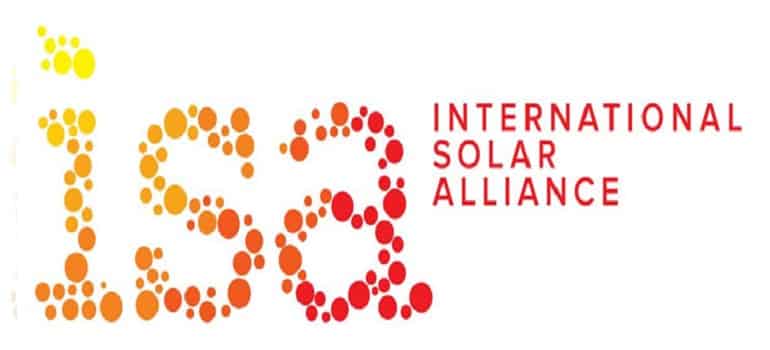 The Netherlands signed the framework agreement of the India-initiated International Solar Alliance (ISA) following a bilateral summit between Prime Minister Narendra Modi and his Dutch counterpart Mark Rutte.
The Netherlands signed the framework agreement of the India-initiated International Solar Alliance (ISA) following a bilateral summit between Prime Minister Narendra Modi and his Dutch counterpart Mark Rutte.
The two sides agreed to boost bilateral trade and investment and strengthen cooperation across multiple sectors, including agriculture and food processing, water management and science and technology.
Launched by Modi and then French President Francois Hollande at the Paris climate summit in 2015, the ISA was conceived as a coalition of solar resource-rich countries to address their special energy needs and provide a platform to collaborate on dealing with the identified gaps through a common, agreed approach.
It is open to all 121 prospective member countries falling between the Tropics of Cancer and Capricorn. Modi said that the benefits of technology, experience and mastery The Netherlands has acquired on solar energy should be shared with the whole world.
Jointly addressing the media with Rutte after attending an India-Netherlands CEOs Round Table that followed the bilateral summit, Modi said that hundreds of Dutch companies have been operating in India for many years now.
“The Netherlands is the fifth largest source of the total foreign direct investment made in India till now,” he said. “And in recent times, it has even risen to become the third largest source.” Modi said that in the same way The Netherlands is a very attractive investment destination for Indian companies.
According to figures released by the External Affairs Ministry, India and The Netherlands have a bilateral trade of $7.621 billion (April 2017-Feb 2018). Stating that the interaction with the CEOs of the two countries was very productive, the Indian Prime Minister said: “I am happy that the business community of The Netherlands is enthusiastic about the new opportunities arising in India. I have assured them of my strong commitment to the economic reforms.”
On his part, Rutte said that ties between India and The Netherlands have become very close both on the economic and the political sides. “Many Indian companies, which are active in The Netherlands, are helping us to build a more successful and more resilient society,” he stated.
According to a joint statement issued following the summit, Modi and Rutte acknowledged the role of the private sector in boosting trade and investment relations and underlined the opportunities for intensive Indo-Dutch collaborations under India’s flagship initiatives such as Make in India and StartUp India.
“Highlighting the role of youth in enhancing future collaboration in innovation and startups, the leaders welcomed the launch of the StartUpLink initiative by Invest India and the Netherlands Embassy in Delhi,” the statement said.
In his address, Modi said that agriculture and food processing hold special significance for India as these are related to the country’s food security. “At the same, the target of doubling the income of Indian farmers is also of great significance,” he said.
Stating that The Netherlands have great experience in these areas, he expressed happiness that the Indo-Dutch Centre of Excellence on vegetables has started functioning in Baramati, Maharashtra. “We are working on setting up more such centres,” Modi stated. Highlighting The Netherlands’ role in urban development in India, he said water management projects in Delhi and Vadodara were progressing well.
The joint statement said that innovation, technology and governance being key-ingredients in Indo-Dutch water cooperation, the respective institutions of the two countries have joined hands in several projects including a waste2wealth approach to solid waste and waste water in the Hindon Basin, in assisting leather industries in Kanpur and Unnao to adopt eco-friendly technologies, and in conservation of water through efficient agriculture practices in the sugarcane industry of Uttar Pradesh.
“Both sides agreed to intensify their resolve to enhance cooperation under the aegis of the MoU (memorandum of understanding) in the field of water management signed in June 2017 with focus on the Clean Ganga campaign,” it stated.
Modi also said that Indo-Dutch cooperation in science and technology has completed 10 years and expressed confidence that this will be further strengthened when The Netherlands will participate as the partner country in the Tech Summit to be held in India in 2019.
According to the joint statement, the two leaders also reiterated their strong condemnation of terrorism in all its forms and manifestations. “They deplored the violence caused by Al Qaeda, Daesh/ISIS, Jaish-e-Mohammed, HizbulMujahideen, Lashkar-e-Tayabba, and their affiliates as well as terrorist groups threatening peace and security in South Asia and Europe,” it stated.
Apart from Rutte signing the ISA framework, India and The Netherlands also signed a wide range of agreements and initiatives across different sectors like knowledge institutions, water, agrifood and horticulture, hi-tech, IT and space, life sciences and health, smart cities, business, and sustainability.
Source: IANS
ALSO READ:
SDMC becomes first civic body in the country to generate solar energy
Sandia National Laboratories to design a cheaper and more efficient solar energy system.


